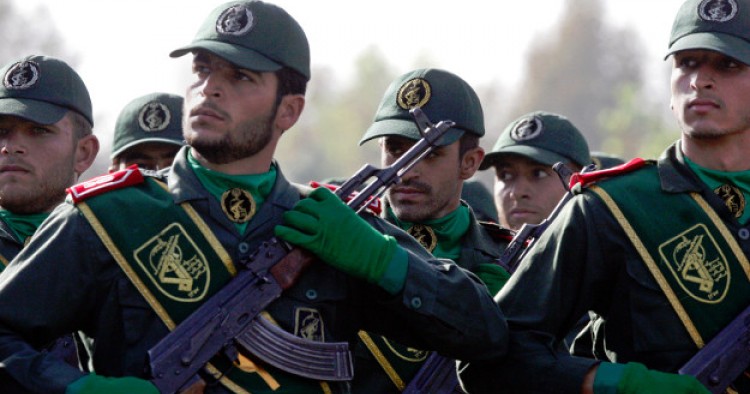As the Trump administration is considering designating Iran’s Islamic Revolution Guards Corps (I.R.G.C.) as a “Foreign Terrorist Organization,” two senior Iranian civilian leaders have strongly defended the I.R.G.C.’s military involvement in the Middle Eastern conflicts. Foreign Minister Mohammad Javad Zarif this weekend praised the I.R.G.C.’s efforts to fight “terrorism” in the region and argued that Washington’s threat of designating Iran’s elite military unit will be futile. “These moves by America have never benefited the American people and government. What the whole world says is that our brothers in Sepah [I.R.G.C.] have provided most of the support to neighboring countries against terrorists, particularly Takfiri [a term used by Iranian leaders to describe Sunni extremist militants] terrorists, Daesh [Islamic State] and al-Nusra [Jabhat Fateh al-Sham]. And any action against these brave men of our country will further unmask the reality of those who commit such actions and will definitely not be good for them,” he told reporters. “I am confident that these vain moves will also have no impact,” he added Separately, Iran’s Parliament Speaker Ali Larijani today also defended the I.R.G.C.’s role in safeguarding the Islamic revolution at home and securing the Iranian interests abroad.
Comment: When Iran signed a nuclear agreement with the United States and five other world powers in July 2015, many hoped that the landmark deal would also moderate Iranian behavior in the region. It was hoped that the accord would give the Rouhani government the political capital needed to pressure the I.R.G.C. to curtail its support for terrorist and militant groups that fight Iran’s wars across the region. But so far all evidence points to the contrary, as the I.R.G.C. has only deepened its direct military engagement and support for its proxies from Afghanistan to Syria and Iraq.
Moreover, the Rouhani government has effectively subordinated Iran’s policies in the region to the I.R.G.C., particularly to Qassem Soleimani, the leader of I.R.G.C.’s secretive Quds Force. Rather than contain I.R.G.C.’s subversive actions, President Hassan Rouhani’s senior cabinet members repeatedly praise the I.R.G.C. for having the upper hand in regional matters. Zarif, Iran’s most senior and skillful diplomat, has admitted in the past that he has had a close relationship with Soleimani for over 20 years. When I was the head of the [Iranian] negotiating team involving questions of Iraq and Afghanistan, I had a very good working relationship with General Soleimani,” Zarif stated earlier this month.
Zarif’s comment also indicates that Iranian leaders are concerned about the Trump administration’s potential plan to designate the country’s top military unit as a terrorist entity. Iranian media and legal experts have already begun examining the implications a potential decision by the Trump administration to designate the Islamic Revolution Guards Corps (I.R.G.C.) as a terrorist entity. Tabnak, an outlet affiliated with former I.R.G.C. chief commander Mohsen Rezaei, published a lengthy article earlier this month saying that blacklisting the I.R.G.C. could indirectly undermine the nuclear agreement. “The global economy is deeply dependent on America. Therefore, major countries and companies do not want to lose the American market. When a [terrorist designation] list is prepared and leaves its direct impact on Iran’s economy, all countries and companies that could invest in and do business with Iran will refrain from doing so and we will face a lot of detriments,” the article explained.
The U.S. government has already designated individuals and entities affiliated with the I.R.G.C., but designating the whole of the organization would put the I.R.G.C. together with a long list of U.S.-designated terrorist organizations, including al Qaeda and the Islamic State. The I.R.G.C. is Iran’s elite military force, which was established by the Islamic Republic’s founder Ruhollah Khomeini to defend the fledgling clerical regime following the 1979 revolution. But over the past 37 years, the I.R.G.C. has not only turned into Iran’s most powerful military force but it also dominates Iranian economy and has extensive influence over the country’s politics as well. The Quds Force under Soleimani has played an active role in arming, training and funding terrorist and militant organizations in the Middle East, particularly after the U.S. invasion of Iraq in 2003.
The Middle East Institute (MEI) is an independent, non-partisan, non-for-profit, educational organization. It does not engage in advocacy and its scholars’ opinions are their own. MEI welcomes financial donations, but retains sole editorial control over its work and its publications reflect only the authors’ views. For a listing of MEI donors, please click here.













